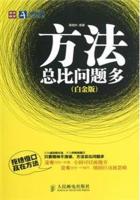Opposed to the national creed of Scotland, and an adherent of liberal principles, he was regarded as a dangerous man by the government of the day.On Sunday, March 26, 1815, news came of the escape of Bonaparte from Elba, and in the chapel he happened to give out the paraphrase used in the Scotch worship, " Behold, be comes ! your leader comes! " and it was interpreted as a welcome to the restored emperor, and he was subjected to a prosecution by the Lord Advocate.He answered with spirit in a pamphlet, " Statement of the Facts connected with a Precognition taken in the College on March 30 and 31, 1815." He speaks of Bonaparte as "a man whom he had long regarded with sentiments of the deepest abhorrence and detestation, not only as the disturber of the peace and happiness of nations, but as the greatest enemy to the civil and political liberties of mankind."His philosophy was a sufficiently simple one: he made it very clear, and he saw no difficulties.There are three, and only three, faculties of the mind, -- sensation, memory, and judgment.With certain explanations he adopts the principle "nihil in intellectu quod non prius fuerit in sensu." He sees that it may be necessary to have a separation of the senses usually represented as touch, gone sense to receive sensations from solids, and another from such qualities as heat.He does not get rid of memory so readily as Brown and Mill.He opposes the theory of the French philosophers who affirm that memory is a mere modification of former impressions, and from Hume who makes conceptions differ merely in degrees from sensation.The eye, indeed, after long looking at a bright object, when shut retains {366} the brightness; but this, lie argues, is a proof that memory is not a sensation, for frequently, at the very time the spectrum, as it is called, remains in the eye, we can remember that it is not the same.He is obliged to make judgment a separate faculty; but then it consists merely in perceiving the difference of feelings.He starts the question, whether our ideas are images of external objects, and answers that external objects are rather pictures of our sensations.He distinguishes between ideas and sensations.An idea is a feeling in the mind which it has distinguished and recognized as different from the other feelings, and feeling becomes an idea as soon as this distinction is made.
It seems to him easy to explain all the operations of the mind by these three faculties.He accounts for attention by showing that some of our sensations and feelings are more strong and lively than others.He thinks the laws of association may be reduced to two, -- contiguity and (taking the hint from Stewart) relationship.As most of our perceptions are furnished in combinations, no wonder that they are again brought together before the mind in combination.But the associations of relationship are much more numerous than those of contiguity.Abstraction is nothing more than the attention directed in a particular way.He explains the peculiarity of habit by the circumstance that, by the frequent repetition of an action, we become acquainted with all the means necessary towards its accomplishment.This is surely not the whole truth, for habit is often carried on without any exercise of will; but there may be some truth in his idea that there may be volitions which are not remembered.Feelings are nothing but modifications of sensation, -- the effect of sensations.
Conscience is a decision of the judgment, accompanied in many cases by strong and vivid emotions.Desire is the conception of an object as good, as absent, and as attainable.He succeeds in this cool way to account for all the deeper and higher acts and ideas of the mind; but it is by simply overlooking their Peculiar and distinguishing properties.
He dwells at length on principles of action.The ultimate principle is a desire to secure pleasure and avoid pain.He traces the intellectual operation of conception in all affections and passions, following out the Stoic resolution of passion as developed by the representative of Stoicism in Cicero's "Tusculan Disputations" (lib.iv.),
and by which they thought that passion might be brought thoroughly under the control of judgment by a proper regulation of the conception.The Stoic moralists and Mylne did service to philosophy by giving the proper place to the idea or conception; but then he does not see that the conception must be of something appetible or inappetible, derived from a spring of action in the heart or will.He has a good division of the affections into: (1) Those in which the object of them is regarded as in possession, including joy and all its modifications; (2) Those in which the object is absent, though attainable: this produces desire; (3)Those in which the object either already attained, or about to be attained, is produced by ourselves, which produces self-satisfaction; (4) Those in which the agency of others is concerned, giving rise to affection and esteem.He held firmly by the doctrine of philosophical necessity in its sternest and most unrelenting form.Altogether, he had much of the character of an old Stoic philosopher, but without those lofty ideas about following nature and the will and decree of God which elevated the systems of Zeno, Cleanthes, Epictetus, and Marcus Aurelius.















